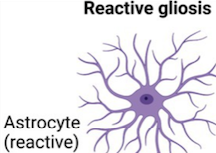Epilepsy, as a chronic disorder characterized by neuronal dysfunctions and by substantial disturbances of glial cells. Dr Evgenia Sitnikova, together with colleagues from Istanbul University and Acibadem Mehmet Ali Aydinlar University (Istanbul, Turkey), published a review on the role of neuroglia in epilepsy, including epileptogenesis and ictogenesis, including epileptogenesis (generation of seizure activity) and ictogenesis (generating seizure activity).
Special attention is paid to new strategies for targeted therapy of epilepsy aimed at regulating the functions of astrocytic neuroglia: (1) selective targeting of glia-related molecular mechanisms of glutamate transport; (2) modulation of tonic GABA release from astrocytes; (3) gliotransmission; (4) targeting the astrocytic Kir4.1-BDNF system; (5) astrocytic Na+/K+/ATPase activity; (6) targeting DNA hypo- or hypermethylation of candidate genes in astrocytes; (7) targeting astrocytic gap junction regulators; (8) targeting astrocytic adenosine kinase (the major adenosine-metabolizing enzyme); and (9) targeting microglia-astrocyte communication and inflammatory pathways. Details could be found in this paper [1] published in July 2023 in Frontiers in Molecular Neuroscience
1. Carcak N., Onat F., Sitnikova E. Astrocytes as a target for therapeutic strategies in epilepsy: current insights. Frontiers In Molecular Neuroscience. 2023. 16: 1183775. DOI: 10.3389/fnmol.2023.1183775
The illustration [1] published licensed under CC BY 4.0. © 2023 authors
